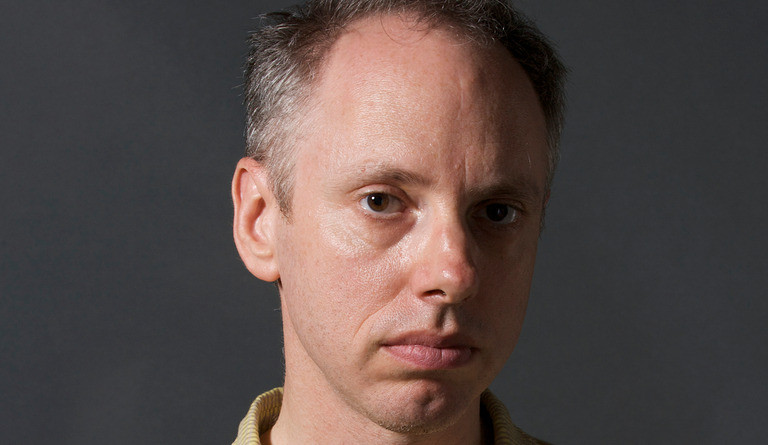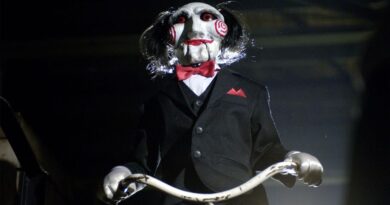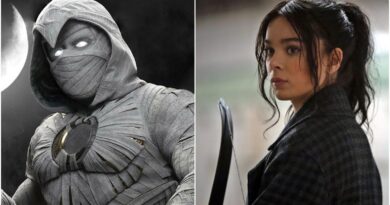All 8 Todd Solondz Ranked from Worst to Best
4. Weiner-Dog
Starring – E. Burstyn, Kieran Culkin
Stream – Prime Video
Wiener-Dog is a moving examination of the intricacies of existence, presented through a sequence of interwoven scenes centered around a dachshund. Every video invites viewers to reflect on the absurdities of life by providing a distinct viewpoint on subjects like redemption, loneliness, and the human condition.
The first part chronicles the dachshund’s adventures after she is taken in by Keaton Nigel Cooke’s character, Remi, a little boy. Remi’s disease and unstable family life underscore themes of vulnerability and the need for solace in the face of hardship, reflecting the dog’s own path. Todd Solondz examines the complexity of familial dynamics and the naivete and resiliency of adolescence via Remi’s encounters with the dachshund.
Within the second part, the dachshund is taken in by Dawn Wiener, a character brought back from Solondz’s previous picture Welcome to the Dollhouse. Greta Gerwig portrays Dawn, a woman who approaches maturity with a combination of sensitivity and tenacity. As she struggles with acceptance and identity, her encounters with the dachshund serve as a catalyst for her inner growth and self-discovery.
In the third part, Danny DeVito plays screenwriting professor Dave Schmerz, who meets the dachshund by accident and decides to adopt it. A darkly hilarious commentary on the nature of art and ambition is offered by Dave’s existential crisis and difficulties with creative fulfillment. Todd Solondz explores themes of disenchantment and the quest for purpose in an uncertain world through Dave’s story.
In the last part, Ellen Burstyn plays Nana who develops a relationship with the dachshund she has named Cancer. A moving meditation on mortality and the human condition can be found in Nana’s observations about growing older, feeling regret, and time passing. Her interactions with her grand-daughter who has come to visit her as she needs money, gives an interesting sneak-peek as to the life she leads.
Her dream focusing on the paradox of choices makes this part most interesting. Solondz explores the intricacies of existence and the human psyche with his signature dark humor and unapologetic honesty. Each episode provides an intimate look into the lives of people juggling their own problems and aspirations, which eventually combine to create a complex tapestry of human experience.
3. Storytelling
Starring – Selma Blair, Leo Fitzpatrick
Stream – Amazon (Rent)
Storytelling is split into two halves, “Fiction” and “Non-Fiction,” each of which presents a distinct viewpoint on narrative and how it affects our lives. In “Fiction,” Todd Solondz explores the world of a creative writing program, where a budding writer wrestles with issues of moral complexity in story, identity, and power dynamics. The plot captivates me with its depth of emotion, combining dark comedy and poignancy.
Solondz changes direction in “Non-Fiction,” concentrating on a suburban family who are the subject of a documentary. The main character, Scooby, is a closeted adolescent navigating the uncertainties of puberty. Mark Webber does a fantastic job portraying him. Scooby perseveres in the face of catastrophe, and viewers are forced to face up to harsh realities about media voyeurism and exploitation as a result of the camera’s digging into the family’s struggles.
Storytelling portrays human fragility and the blurred boundaries between performance and reality in such a way that it leaves the viewer feeling both emotionally moved and uneasy. I was forced to re-evaluate my own beliefs about narrative and its influence on our lives by Solondz’s courageous investigation.
2. Welcome to the Dollhouse
Starring – Heather Matarazzo
Stream – YouTube
Welcome to the Dollhouse is more than just a film; it’s an exploration of the difficulties associated with growing up, negotiating social situations, and tackling the intricate reality of interpersonal interactions. Todd Solondz takes us inside Dawn Wiener’s world, as masterfully depicted by Heather Matarazzo, who perfectly encapsulates the awkwardness and vulnerability of adolescent.
Heather Matarazzo plays Dawn Wiener, an uncomfortable and timid lead character who finds it difficult to fit in. Dawn is a flawed person who has experienced brutality and selfishness, yet her journey is one of self-awareness and development. Through her experiences, viewers are made aware of their own vulnerabilities and inadequacies, and they are inspired and given hope by her tenacity and will to be acknowledged.
Welcome to the Dollhouse is notable because it doesn’t sugarcoat the difficult realities of puberty. By exposing the innermost thoughts and struggles of his characters, Solondz pushes us to face difficult realities about both the world and ourselves. The complexity of human nature, including the hazy boundaries between right and wrong, search for identity, and the need for connection, are seen through Dawn’s eyes.
However, Todd Solondz does not end there. He returns to characters from this movie in following films such as Palindromes and Wiener-Dog, offering us insights into their life outside of the original story. Making us speculate the choices they might make. These comebacks give his world more nuance and complexity while letting us observe how Dawn and the others are still attempting to navigate adulthood’s obstacles.
1. Happiness
Starring – Jane Adams, E. Ashley
Stream – Amazon (Rent)
Happiness explores the deepest recesses of human nature with such fearlessness. It presents a terrifying viewpoint on topics like p word and murder, making viewers face hard realities about the complexity of morality. It tackles characters facing their inner demons in pursuit of happiness through entwined narratives.
The thing that most impressed me with Happiness is Todd Solondz’s ability to give even the most heinous characters a human face and depth beyond their heinous deeds. The movie forces us to accept the compassion of people like Bill Maplewood, a seemingly average suburban father hiding terrible secrets, despite our disgust for them and the frightening truth that evil may exist beneath a façade of normalcy.
The film’s examination of loneliness and desperation is further emphasized by the story of Kristina, a lonely lady who goes to great lengths in an attempt to find connection. She’s keeping a secret that might put her in jail. Solondz’s representation makes us re-evaluate our ideas about right and wrong, inspiring contemplation long after the last credits have rolled.
Happiness (1998) is a comprehensive and thought-provoking analysis of the human condition, yet it is not an easy picture to watch. It offers a complex viewpoint on the difficulties faced by its protagonists, obfuscating the distinctions between tragedy and humor, especially when it comes to issues of s*xuality. “Happiness” handles taboo issues sensitively, seeing them as signs of suffering and desperation rather than as plot devices, in contrast to films that sensationalize them.
Related: Best Movies of Margot Robbie You Shouldn’t Miss!
- Amar Singh Chamkila Review: Inspiring! - April 13, 2024
- All 8 Todd Solondz Ranked from Worst to Best - April 12, 2024




